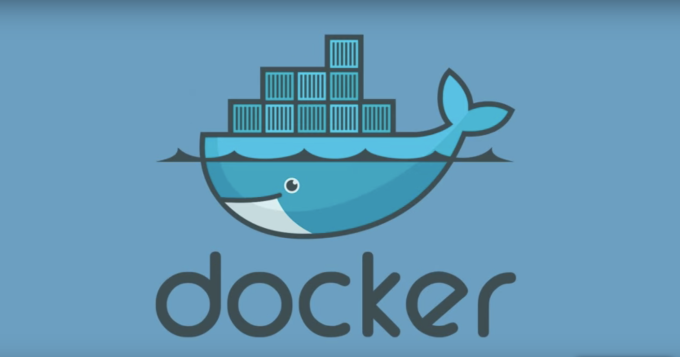Kubernetes NFS shared storage in AWS with EFS
AWS efs-provisioner plugin
I’m using the efs-provisioner driver. There is a CSI storage driver too aws-efs-csi-driver available. To use the driver the K8S nodes need to have dns-common package installed for the Debian flavored Linux distros.
EFS File System
Create a Security Group in the Kubernetes VPC and open TCP port 2049 (NFS) for access from the worker nodes SG. For Kops the SG for the default nodes Instance Group is nodes.<cluster-name>.
Now login to the EFS service in the EC2 console and create a new File System. Select the above created SG in the Mount targets section. There is an encryption option too if needed for the storage.
In the Client Access section use the appropriate check boxes to create a Policy that allows client root access to the share. The Policy should look like this in its JSON format:
{
"Version": "2012-10-17",
"Id": "efs-policy-wizard-<random-uid>",
"Statement": [
{
"Sid": "efs-statement-<random-uid>",
"Effect": "Allow",
"Principal": {
"AWS": "*"
},
"Action": [
"elasticfilesystem:ClientMount",
"elasticfilesystem:ClientWrite",
"elasticfilesystem:ClientRootAccess"
],
"Resource": "arn:aws:elasticfilesystem:eu-west-1:123456789012:file-system/fs-xxxxxxxx"
}
]
}
Note the File System id fs-xxxxxxxx and DNS name fs-xxxxxxxx.efs.eu-west-1.amazonaws.com when the provisioning is finished.
Kubernetes Storage Class
Create the following efs.yml file (drop the RBAC part and the serviceAccount line if not used) and set the above values and the correct AWS region at the bottom of the file:
---
kind: ClusterRole
apiVersion: rbac.authorization.k8s.io/v1
metadata:
name: efs-provisioner-runner
rules:
- apiGroups: [""]
resources: ["persistentvolumes"]
verbs: ["get", "list", "watch", "create", "delete"]
- apiGroups: [""]
resources: ["persistentvolumeclaims"]
verbs: ["get", "list", "watch", "update"]
- apiGroups: ["storage.k8s.io"]
resources: ["storageclasses"]
verbs: ["get", "list", "watch"]
- apiGroups: [""]
resources: ["events"]
verbs: ["create", "update", "patch"]
---
kind: ClusterRoleBinding
apiVersion: rbac.authorization.k8s.io/v1
metadata:
name: run-efs-provisioner
subjects:
- kind: ServiceAccount
name: efs-provisioner
namespace: kube-system
roleRef:
kind: ClusterRole
name: efs-provisioner-runner
apiGroup: rbac.authorization.k8s.io
---
kind: Role
apiVersion: rbac.authorization.k8s.io/v1
metadata:
name: leader-locking-efs-provisioner
rules:
- apiGroups: [""]
resources: ["endpoints"]
verbs: ["get", "list", "watch", "create", "update", "patch"]
---
kind: RoleBinding
apiVersion: rbac.authorization.k8s.io/v1
metadata:
name: leader-locking-efs-provisioner
subjects:
- kind: ServiceAccount
name: efs-provisioner
namespace: kube-system
roleRef:
kind: Role
name: leader-locking-efs-provisioner
apiGroup: rbac.authorization.k8s.io
---
apiVersion: v1
kind: ServiceAccount
metadata:
name: efs-provisioner
---
kind: Deployment
apiVersion: apps/v1
metadata:
name: efs-provisioner
spec:
replicas: 1
selector:
matchLabels:
app: efs-provisioner
strategy:
type: Recreate
template:
metadata:
labels:
app: efs-provisioner
spec:
serviceAccount: efs-provisioner
containers:
- name: efs-provisioner
image: quay.io/external_storage/efs-provisioner:latest
env:
- name: FILE_SYSTEM_ID
valueFrom:
configMapKeyRef:
name: efs-provisioner
key: file.system.id
- name: AWS_REGION
valueFrom:
configMapKeyRef:
name: efs-provisioner
key: aws.region
- name: DNS_NAME
valueFrom:
configMapKeyRef:
name: efs-provisioner
key: dns.name
optional: true
- name: PROVISIONER_NAME
valueFrom:
configMapKeyRef:
name: efs-provisioner
key: provisioner.name
volumeMounts:
- name: pv-volume
mountPath: /persistentvolumes
volumes:
- name: pv-volume
nfs:
server: fs-xxxxxxxx.efs.eu-west-1.amazonaws.com
path: /
---
kind: StorageClass
apiVersion: storage.k8s.io/v1
metadata:
name: aws-efs
provisioner: example.com/aws-efs
---
apiVersion: v1
kind: ConfigMap
metadata:
name: efs-provisioner
data:
file.system.id: fs-xxxxxxxx
aws.region: eu-west-1
provisioner.name: example.com/aws-efs
dns.name: ""
and apply the manifest:
$ kubectl apply -n kube-system -f efs.yml
We should now see our new StorageClass:
$ kubectl get sc
NAME PROVISIONER AGE
aws-efs example.com/aws-efs 3h35m
[...]
and the provisioner Pod(s) running:
$ kubectl get pods -n kube-system -l app=efs-provisioner
NAME READY STATUS RESTARTS AGE
efs-provisioner-759446fcfb-v49pb 1/1 Running 0 77m
NOTE: The following step is only required in case you want to set path: /persistentvolumes instead of path: / under volumes: above for some reason.
Create the /persistentvolumes directory that the aws-efs will use by default. I do it by mounting the NFS share on one of the cluster nodes:
user@host:~$ ssh 10.10.1.139
admin@ip-10-10-1-139:~$ sudo mkdir /mnt/efs
admin@ip-10-10-1-139:~$ sudo mount -t nfs4 -o nfsvers=4.1,rsize=1048576,wsize=1048576,hard,timeo=600,retrans=2,noresvport fs-xxxxxxxx.efs.eu-west-1.amazonaws.com:/ /mnt/efs
admin@ip-10-10-1-139:~$ sudo mkdir /mnt/efs/persistentvolumes
This is the only way I have found to make this option work.
Usage
Create the following efs-pvc-and-pod-test.yml manifest:
---
kind: PersistentVolumeClaim
apiVersion: v1
metadata:
name: efs
annotations:
volume.beta.kubernetes.io/storage-class: "aws-efs"
spec:
accessModes:
- ReadWriteMany
resources:
requests:
storage: 1Mi
---
kind: Pod
apiVersion: v1
metadata:
name: test-pod
labels:
app: efs-test
spec:
containers:
- name: test-pod
image: gcr.io/google_containers/busybox:1.24
command:
- "/bin/sh"
args:
- "-c"
- "touch /mnt/SUCCESS && exit 0 || exit 1"
volumeMounts:
- name: efs-pvc
mountPath: "/mnt"
restartPolicy: "Never"
volumes:
- name: efs-pvc
persistentVolumeClaim:
claimName: efs
and apply:
$ kubectl apply -f efs-pvc-and-pod-test.yml
persistentvolumeclaim/efs created
pod/test-pod created
The check for the new PV:
$ kubectl get pv
NAME CAPACITY ACCESS MODES RECLAIM POLICY STATUS CLAIM STORAGECLASS REASON AGE
pvc-eac45e51-xxxx-xxxx-xxxx-xxxxxxxxxxxx 1Mi RWX Delete Bound default/efs aws-efs 3m41s
$ kubectl get pvc
NAME STATUS VOLUME CAPACITY ACCESS MODES STORAGECLASS AGE
efs Bound pvc-eac45e51-xxxx-xxxx-xxxx-xxxxxxxxxxxx 1Mi RWX aws-efs 3m44s
and the Pod status:
$ kubectl get pods -l app=efs-test
NAME READY STATUS RESTARTS AGE LABELS
test-pod 0/1 Completed 0 5m14s app=efs-test
To cleanup run:
$ kubectl delete -f efs.yml



Leave a Comment